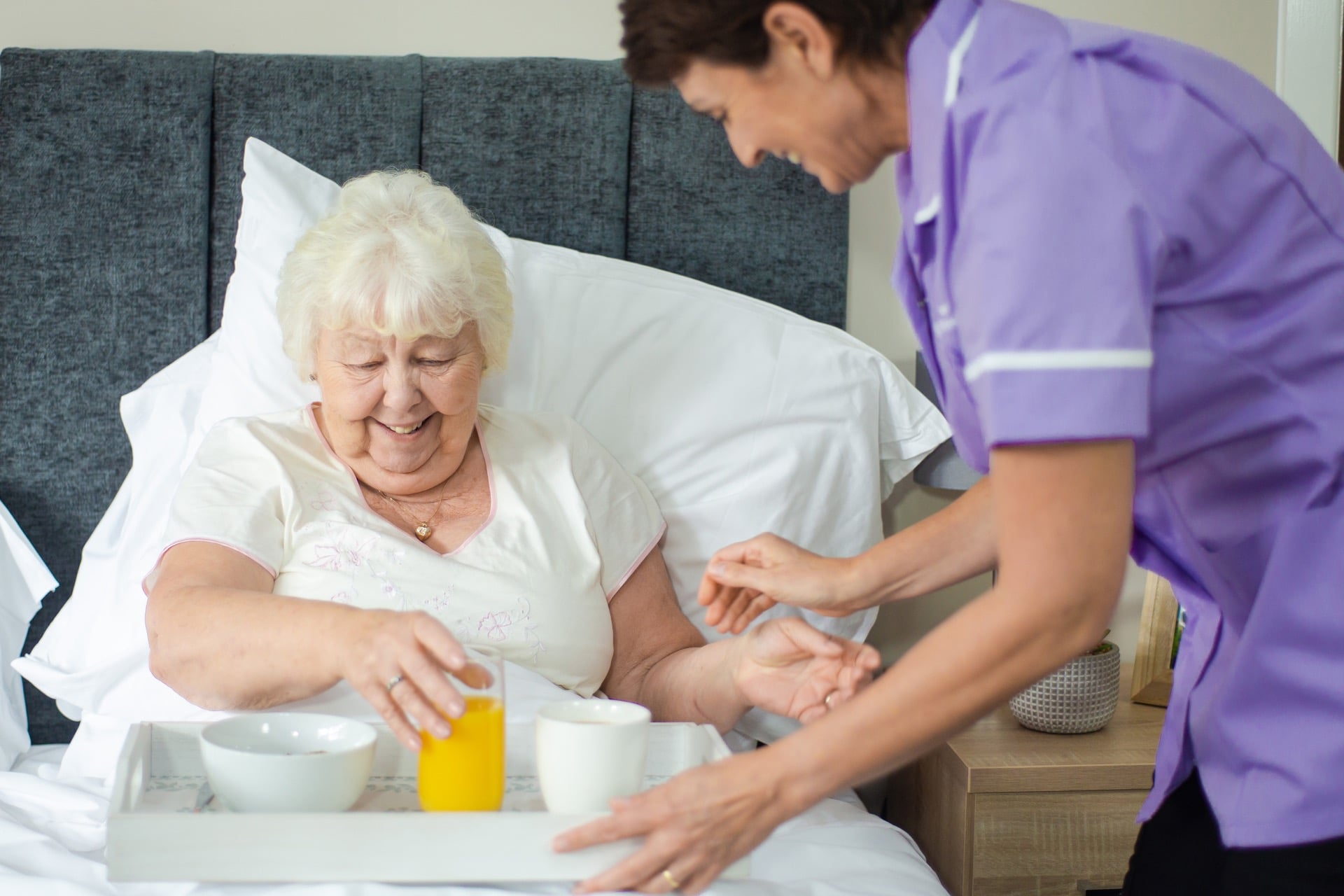Solutions for nighttime incontinence in the elderly

Causes of elderly night incontinence
Night incontinence or nocturnal enuresis, is a condition where the bladder empties during sleep and is common among older adults.
Neurological conditions
Living with a neurological condition such as Parkinson’s, multiple sclerosis (MS) or dementia can have an impact on your bladder. This is because the bladder muscles and nerves are unable to communicate with the brain properly. So, your brain won’t know when your bladder is full, resulting in loss of bladder control.
Medication
Some medications can affect your bladder. If you are taking regular medication and find that it is making your condition worse, contact your doctor. They can assess if it contributes to your incontinence. They will be able to amend your dose or prescribe alternative medication to help stop incontinence.
Urinary tract infection (UTI)
According to the NHS, “Urinary tract infections (UTIs) are usually caused by bacteria.” Having a UTI can sometimes cause incontinence. Contact your doctor to see if this is the case. They will ask for a urine sample to help diagnose the condition. UTIs tend to be treated with antibiotics.
Fluid intake
Some drinks, including alcohol and caffeine, can irritate the bladder and make you produce urine more quickly than usual. So it is best to avoid having an excess amount. Water is the best option.
Stress and anxiety
Stress and anxiety can trigger incontinence. As an older adult, you may be experiencing different forms of stress, which can impact your nerves, leading to loss of bladder control.
Diabetes
According to Diabetes.co.uk, when your kidneys become weak, “More sugar appears in the urine and simulates extra volumes of urine to be produced,” which can cause incontinence.
Importance of tracking urinary incontinence in the elderly

We understand incontinence can cause disturbed sleep and frustration. It can also make you feel a little embarrassed.
However, it’s no fault of your own. It is important to track what’s happening so you can find out how it can be treated.
It is best to keep a diary where you can record how much you drink and how many times you go to the toilet. Also, note how often you wet the bed and the amount of leakage. It is recommended to keep a diary for 72 hours. Once you have this information, contact your doctor. They will be able to advise you on your next steps and decide whether you need treatment.
Treating incontinence at night for the elderly
Incontinence can be unnerving and can stop you from travelling or staying away from home. However, there are treatments available to help reduce or stop nighttime incontinence.
Reduce fluid intake
It’s essential to monitor how many fluids you drink and what types of drinks you consume. It is important not drink any fluids before bedtime.
Water is the best fluid for your body. You can also add a splash of squash for flavour. De-caffeinated drinks may also help. Limit your alcohol and caffeine intake and don’t drink any fluids before bedtime, as this can cause incontinence.
Incontinence alarms
You can purchase an alarm, which you attach to your incontinence pad or pants. It will go off when it traces moisture. This will alert you to wake up when your bladder is full, so you can go to the toilet.
Incontinence alarms are available to purchase online.
Retrain your bladder
Try and retrain your bladder by going to the bathroom at set times during the day.
It may be best to set a reminder on your phone, as it will alert you to go to the bathroom. Then, slowly increase the amount of time between bathroom visits. This will allow your bladder to hold more fluid.
Medication
If you are having difficulty treating the condition, your doctor may prescribe you medication to help. This can include Oxybutynin, which helps to treat an overactive bladder. According to the NHS, Oxybutynin relaxes the muscles around the bladder, so the “bladder can hold more liquid and you do not need to pee as often or as urgently.”
Helping Hands can aid your elderly care needs
At Helping Hands, we provide care at home so our customers can maintain their independence and routine.
Our compassionate carers can provide elderly care on a visiting or live-in care basis. So you can have someone visit you for as little as 30 minutes a week or longer. They can support you with household duties, medication, running errands and personal care. If you are having trouble with incontinence, our carers can support you with the condition. This can include helping with monitoring your fluids and changing the bedding. Whatever you need, we will work hard to fulfil your needs and requirements.
For added reassurance, we are regulated and monitored by the Care Quality Commission and Care Inspectorate Wales. This means our services are regularly inspected to ensure we provide well-led, responsive and compassionate care.

Page reviewed by Deanna Lane, Clinical Manager, on January 22, 2024.
